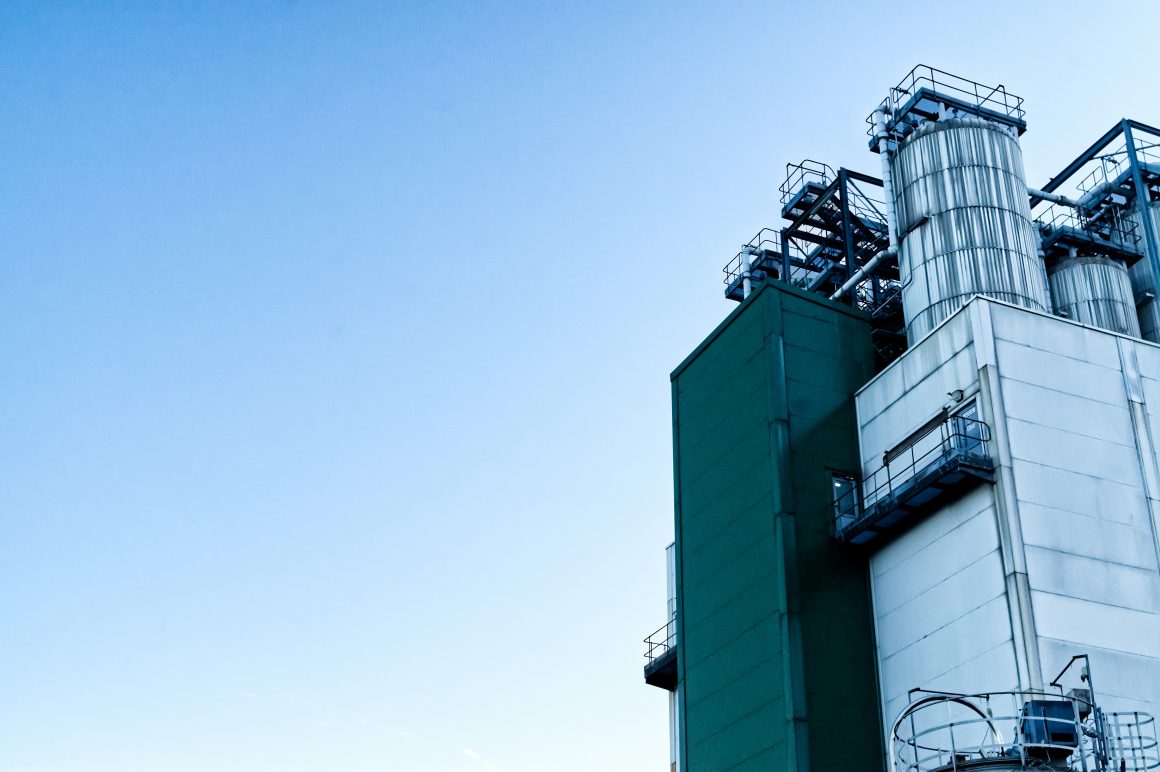At Chronicle Law we want to provide you with the latest legal news from the industry and we are pleased to share with you Robert Spicer’s latest round-up of health and safety case summaries with a selection from his ‘Health and Safety Horrors’ Linked In posts. We thank Robert Spicer for sharing his case law updates with us. If you missed the previous articles in this feature series you can read find them all linked at the bottom of his author page on our website.
A note from Robert Spicer
I was called to the Bar in 1970 and I continue to practise full time in the areas of employment law and health and safety at work. I have monitored health and safety prosecutions for a number of years. My website is www.frederickchambers.co.uk
Worst ever health and safety horror story?
Posted on December 12, 2024
In May 2011 East Sussex County Council was fined following an incident in which a man died and five others were seriously injured when they drank dishwasher fluid.
A group of persons from the St Nicholas Centre in Lewes, a day care facility for adults with learning difficulties run by the council, were taken to Plumpton Agricultural College to use the sports facilities.
They were given a drink which had been prepared at the day centre and brought to the sports hall. This should have been orange squash but actually contained sodium hydroxide, a cleaning chemical.
The six who drank the fluid started vomiting blood and fitting. Colin Woods, who had Down’s Syndrome, died 17 months after drinking the chemical. Five others suffered burns to their mouths, throats and stomachs. Most had to undergo repeated surgery.
Three will never be able to swallow normally again.
East Sussex County Council had failed to ensure that the fluid was safely stored away. It was left on the side in an unlocked kitchen. The chemical was marked as corrosive but it was similar in appearance to that of orange squash.
Surviving service users at the day centre were too traumatised by the incident to be interviewed about who had mixed the drink.
East Sussex County Council was fined £50,000, plus £27,000 costs, for a breach of section 3 of the Health and Safety at Work,etc., Act 1974, for failing to ensure the health and safety of non-employees.
A spokesperson for the HSE is reported to have made the following comments:
· This was one of the worst incidents which he had investigated in all his time as a health and safety inspector.
· It was impossible to adequately imagine the suffering and terror that the victims must have felt as the tragedy unfolded.
· The terrible thing was that the incident and its horrific consequences could so easily have been prevented by simply locking away the container of sodium hydroxide.
· Mr Woods had died a slow, painful and unnecessary death and others had suffered terrible and preventable injuries, some painful and permanent, because the council had failed in its responsibility to take proper care of them. It was imperative that authorities properly protected vulnerable people in their care.
Worker dragged through CD sized gap
Posted on December 15, 2024
Compass Engineering Ltd and Kaltenbach Ltd, a machine supply company, were fined at Sheffield Crown Court in July 2011 after a worker was seriously injured when he was dragged through a gap in a machine. The gap was no wider than a CD case.
· In December 2008 Matthew Lowe, an employee of Compass, was working at the company’s site in Barnsley. He looked into the machine’s outlet point to check a line of work.
· Lowe was caught on a conveyor used to move heavy steel beams. He was dragged through a 125mm opening between a moving measuring head and a wall.
· Lowe suffered serious injuries including a ruptured stomach and bowel, a fractured spine, both hips, his right arm, several ribs and a fractured pelvis. He has lasting physical and psychological damage.
· There was no guarding in place to protect Lowe from dangerous moving parts. This was a serious safety failing for both Compass and for Kaltenbach, which had supplied the machine.
· Both companies were responsible for ensuring that adequate guarding was in place. Although the machine belonged to Compass, Kaltenbach had installed the equipment and signed it off as being fit and ready for use.
· Lowe was inexperienced in operating the machinery after he had been moved from a different line at the premises because of a lull in his regular workload.
· The lack of guarding was the decisive factor.
Compass Engineering Ltd was fined £45,000 plus £24,000 costs under section 2 of the Health and Safety at Work, etc., Act 1974, for failing to ensure the health and safety of employees.
Kaltenbach Ltd was fined £30,000 plus £16,000 costs for a breach of section 6 of the Act.
An HSE inspector commented that it was remarkable that Lowe had survived. If appropriate guarding had been in place, the incident would never have happened. The prosecution would live long in the memory because of the shocking details. He hoped that it served as a reminder to those involved in the manufacturing, processing and supply of machinery of the need to prevent access to dangerous parts.
Lowe is reported to have made the following comments after the case:
· What mattered most was that the industry learned from his experience. His life had changed forever and no matter how well he recovered from his physical injuries, he would still have the psychological impact of the accident hanging over him.
· He hoped that his case highlighted the dangers posed by not following health and safety regulations. It would not put his life back to how it was before the incident, but at least it might prevent others suffering in the future.
· Too many people are needlessly killed and injured in accidents at work. If hearing his story made them think twice about safety, and about the daily risks which they faced in the workplace, then he would be happy.
Section 6 of the 1974 Act states, in outline, that it shall be the duty of any person who designs, manufactures, imports or supplies any article for use at work to ensure, so far as is reasonably practicable, that the article is so designed and constructed that it will be safe and without risks to health at all times when it is being set, used, cleaned or maintained by a person at work.
Molten metal in steelworks
Posted on December 16, 2024
Corus, the steel-making company, was fined £1.3million at Swansea Crown Court on December 15, 2006, for health and safety offences relating to fatalities at its Port Talbot plant.
In November 2001 a blast furnace exploded at the plant. The explosion lifted the top half of the furnace two feet into the air and resulted in molten metal falling on workers. Three were killed, twelve suffered serious burn injuries and five others were injured. The explosion was caused by water leaking into the white hot centre of the furnace, which had been in operation for 47 years. Some of the injured, and those who witnessed the incident, were still receiving psychological treatment five years after the explosion.
The Crown Court Judge criticised the company’s casual attitude to safety. During a two-day hearing, evidence was given of a catalogue of errors which resulted in the explosion. These included years of recommendations by senior employees at the plant, relating to the furnace, which were ignored.
In 1993 a decision was taken to prolong the life of the blast furnace. A committee was set up to discuss and report on the furnace four times a year. The committee made a series of recommendations, none of which were acted upon.
One example was a recommendation to carry out a comparative study into the benefits of electrical and diesel pumps. The failure of a succession of electrical pumps, which circulated cooling water to the furnace, resulted in the explosion. The furnace had suffered many pump failures before the explosion.
The power plant log for the period before the incident showed that an electrical transformer had been damaged by rain and needed repair. A plan to repair it was the start of events which eventually caused the incident. The transformer had to be partially isolated before repairs were carried out. This meant that the current to a furnace pump was transferred to another transformer. This operation needed monitoring to ensure that voltage remained constant.
The team of employees working on the furnace on the day before the explosion was not told about the repair work. When the current was transferred, the voltage in the transformer dropped. This caused a pump to trip and an auxiliary pump, which then came into operation, also tripped. The result of this was that water to cool the system ceased to circulate and approximately 50 tons leaked into the furnace. Employees who were sent to deal with the leak thought that it had been repaired. In fact, the water remained in the furnace. It reacted with the molten metal in the furnace and caused the explosion when the metal core was reheated on the next day.
Corus pleaded guilty to breaches of health and safety law. Defending counsel stated that this did not mean that the company acknowledged that it had foreseen that lives would be at risk. Modern blast furnaces went back to the Victorian era. There were no records of similar explosions having happened. The inquest into the deaths had recorded verdicts of accidental death. An internal report issued by Corus at the time of the inquest had concluded that the explosion was neither foreseen nor foreseeable.
Senior management responsible for the furnace had met to discuss problems with it one hour before the explosion. The risk of a discharge, but not an explosion, had been discussed at the meeting.
The families of the victims of the explosion were reported to have made the following comments:
· They were disgusted and shocked at the outcome.
· It was quite unbelievable that the company should have been fined such a meagre sum.
· Corus should have been fined up to the maximum allowable. A large fine would have ensured that other companies sat up and listened and understood the consequences of not doing enough for health and safety.
· The judge had stated that Corus had made £143million this year after tax, so what they had been ordered to pay was a pinprick.
A spokesperson for Community, the trade union representing steelworkers, was reported to have made the following comments:
· The fine was substantial but the union would have expected it to be higher. It did not begin to reflect the scale of suffering of the workers and their families and of the traumatised community of Port Talbot.
· The union had put all its resources at the disposal of the community and had spent more than £500,000.
· The disaster had been horrific, with hot molten metal flying everywhere.
· The sentence was a warning to industrial companies everywhere and their duty of care towards their employees must be paramount.
 Robert Spicer
Robert Spicer